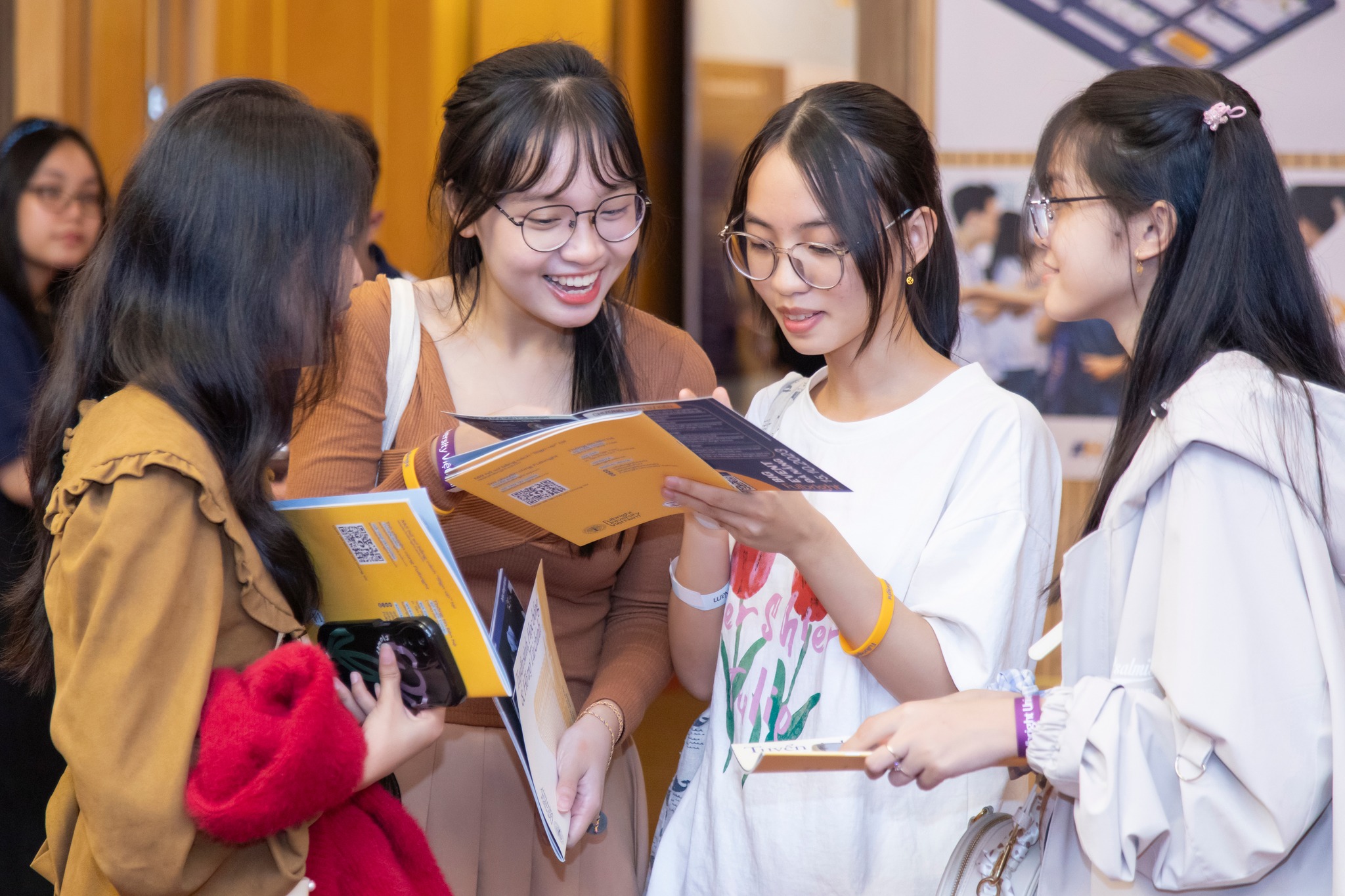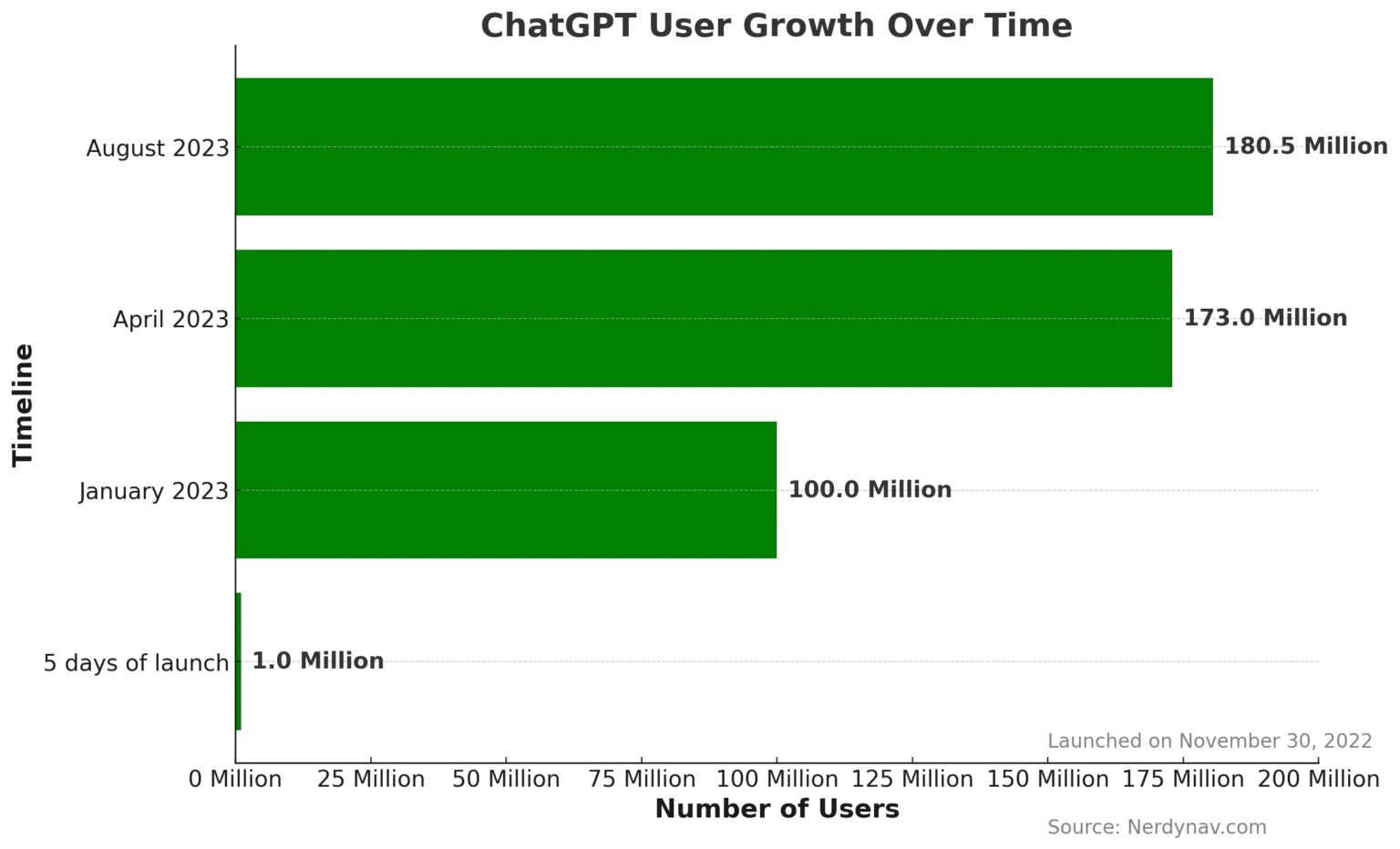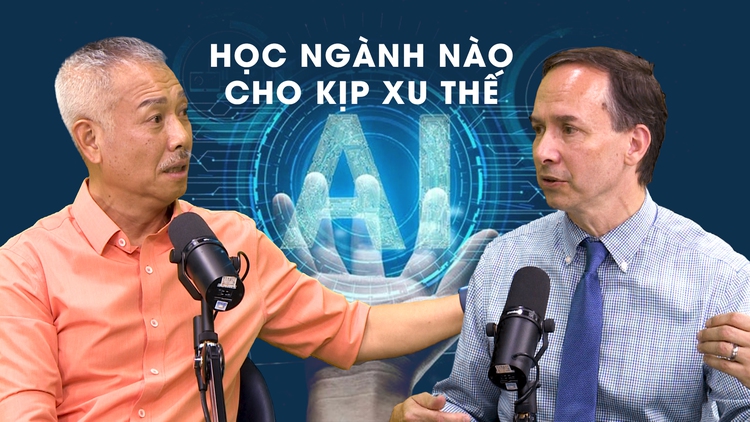
Will We Learn and Teach Like Before in the Age of AI?
Generative AI with Large Language Models (LLMs), notably ChatGPT 3.5 and 4.0, has gradually secured its role as a learning and working assistant for many people. Research indicates that ChatGPT has seen a significant growth in user numbers since its launch. In January 2023, ChatGPT hit 100 million monthly active users, making it the most flourishing application in history until that point. By August 2023, ChatGPT users grew to 180.5 million, with 100 million active weekly. This represents an 80.5% increase over the eight months from January to August 2023. Of all ChatGPT users, the majority are young people between 18 and 34 years old.

The number of ChatGPT users increased from January to August 2023
The explosive prevalence of ChatGPT has stirred controversies in the pedagogical community about the meaning of learning and education. Many advocate for the rise of self-learning in the age of AI, while others fear that AI may discourage students from taking on the rewarding challenges of gaining new knowledge. If AI can now do students’ homework and lecturers’ curriculum, should we need to learn and teach like before?
What to gain and beware of embracing AI
The skyrocketing number of users in a short time of launch proved the indisputable benefits of AI. Given its notable text and image analyzing and generation features, AI increases efficiency and productivity through task automation, enabling humans to concentrate on more complex and creative work. With its ability to fasten data analysis and processing, AI supports better and more informed decision-making. Moreover, AI drives innovation across various sectors, from healthcare diagnostics and treatment to prompt engineering, creating new business and employment opportunities for the next generations. In education and research, AI can bridge the gap of knowledge accessibility and foster educational opportunities for many students, teachers, and researchers in different countries and social backgrounds through active learning and self-improvement.
Alongside the advantages of AI, many significant challenges are confronting the world of work, data security, education and research, and policymaking. While AI creates new jobs, it can also displace workers, especially in industries heavily reliant on repetitive tasks. Furthermore, there’s the potential for AI to be used in ways that could infringe on people’s privacy and personal data, including the creation of sophisticated phishing attacks or deepfakes used for fraudulent or malicious purposes. AI systems can extend or even amplify biases in their training data, leading to unfair or discriminatory outcomes. Once humans become overly dependent on automated systems, overreliance on AI can lead to losing skills and critical thinking abilities. As a result, there has been a surge in new regulation and governance responsibilities to address the novel and societal issues AI presents.
The transformative roles of learners and educators
With AI taking over across all sectors, finding a balanced approach to harnessing its benefits while mitigating potential drawbacks has become essential. This involves continuous ethical oversight, transparent and inclusive policymaking, and fostering a culture of lifelong learning to adapt to the changing technological landscape.
In a recent conversation on the Thanh Nien Podcast, Prof. Truong Nguyen Thanh, who used to work at the University of Utah, USA, and Prof. Scott Fritzen, President of Fulbright University Vietnam, also discussed the new role of students as learners, and universities, as educators, in this contemporary AI-driven society.
Prof. Truong Nguyen Thanh: How should first-year students think about their future while figuring out what and how to learn in the age of AI?
Prof. Scott Fritzen: I think no one has an exact answer to this question, me included. AI is developing comprehensively and will bring changes to the labor market. Students preparing to enter university should consider how the field they choose to study might change. Students and parents should also prepare themselves with critical thinking skills and learn how to upgrade their capabilities proactively. Since no one can predict which professions will disappear in the next seven years, developing the ability to adapt rapidly to changes is crucial.

Prof. Truong Nguyen Thanh (left) and Prof. Scott Fritzen (right) discussed the transformative roles of learners and educators
Therefore, continuously updating knowledge and teaching methods is fundamental in the new age of constant changes. Historically, the pace of educational reform has been sluggish, often lagging behind societal changes. Despite sporadic educational expansion and restructuring during the 19th and 20th centuries, periods in between remained static, linear, and rigid in curriculum development and instructional methods (OECD, 2019). However, integrating AI into education could usher in a new era of personalized learning, paving the way for stackable credentials and continuous learning pathways tailored to the job market’s needs. This possible trend necessitates a critical thinking foundation and a value-based learning approach, calling for updated educational methodologies that foster well-rounded individuals.
Universities are also undergoing a transformative role as we grapple with defining human values in an AI-dominated world. The academic environment will increasingly become a space for nurturing interpersonal skills like teamwork and discussion. At the same time, students gain more testable skills through AI-enhanced learning platforms out of school. This shift underscores the enduring importance of human interaction and the development of social competencies in the educational journey. In other words, the age of AI stimulates the significance of human-centered education.
Adapting Education for an AI-Driven Future
As we stand on the precipice of a new educational era, it becomes increasingly evident that learners and educators must evolve alongside the AI technology that shapes our world. The true power of embracing AI lies not just in harnessing its capacity for innovation and efficiency but in how we adapt our educational philosophies and practices to meet the challenges and opportunities it presents. At the heart of this adaptation, let’s not forget the role of liberal arts in helping students and teachers go beyond the traditional boundaries of learning in classrooms to embrace flexible thinking in real-life problem-solving.
In essence, the age of AI beckons us to reimagine education as a dynamic, adaptive process—one that empowers individuals to thrive in an ever-changing world. As we chart this transformative journey, let us remain steadfast in our commitment to nurturing creativity, adaptability, and above all, our shared humanity.
Thuy Van
Sources:
- Vox. (2024). AI can do your homework. Now what? [Video file]. Retrieved from https://www.youtube.com/watch?v=bEJ0_TVXh-I
- OECD. (2019). OECD Future of Education and Skills 2030 Concept Note. Retrieved from https://bit.ly/42HrkrX
- UNESCO. (2023). Guidance for generative AI in education and research. Retrieved from https://bit.ly/49GPlle
- Exploding Topics. (2024). Number of ChatGPT Users (Feb 2024). Retrieved from https://explodingtopics.com/blog/chatgpt-users
- Nerdynav. (2024). 107 Up-to-Date ChatGPT Statistics & User Numbers [Jan 2024]. Retrieved from https://nerdynav.com/chatgpt-statistics/







